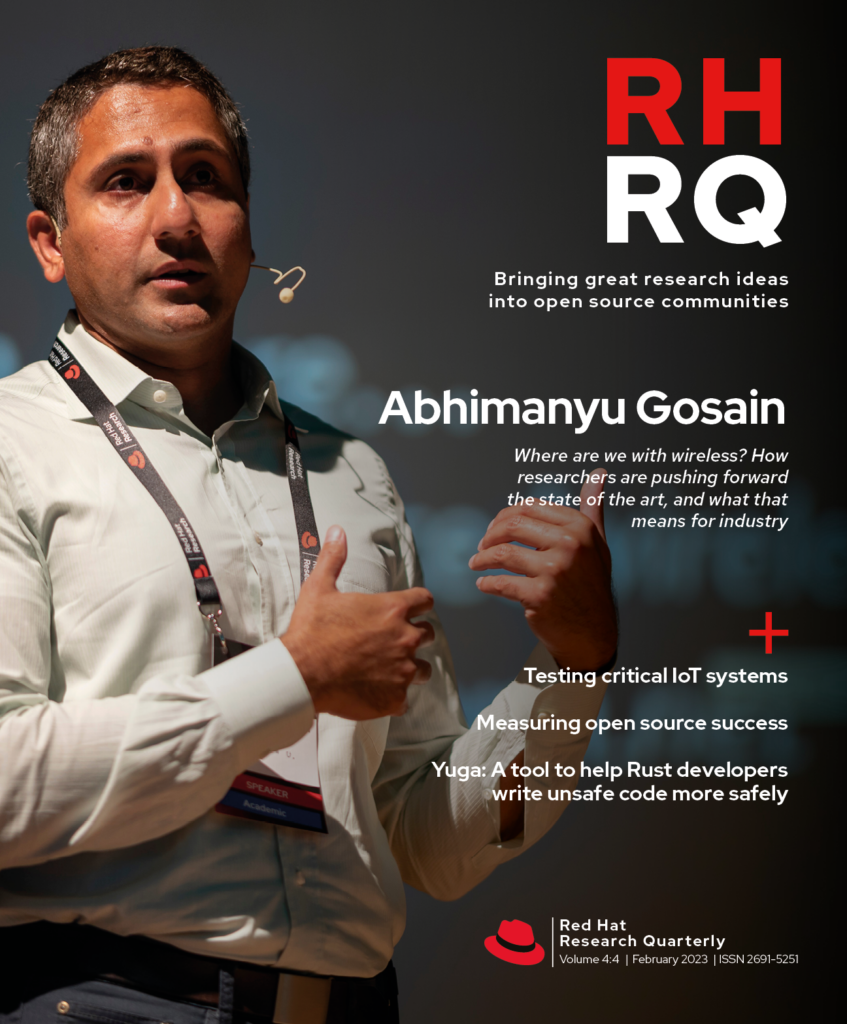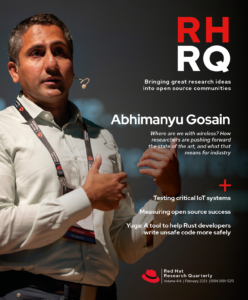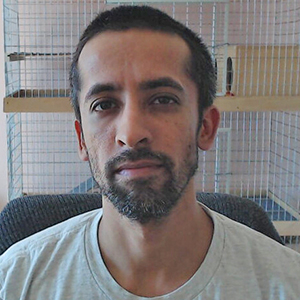Projects in security, hybrid cloud networks, education, autonomous vehicles, and more receive resources for open source research.
On January 2023, the Red Hat Collaboratory at Boston University announced the recipients of its 2023 Research Incubation Awards. The funding program, now in its second year, provides resources to research projects that focus on problems of distributed systems, security, operating systems, and networking whose solution shows promise for advancing the field and driving change in industry.
Expanding research at the Collaboratory will also create opportunities for Red Hat engineers and BU researchers to work together on new cloud development, testing, and experimentation, applying their results to new science and technology domains.
If you are interested in exploring collaboration opportunities on these or other research projects, please contact Heidi Picher Dempsey, US Research Director for Red Hat.
Awards in the second year of funding include renewals for several projects that received 2022 Research Incubation Awards and new submissions. Red Hat US Research Director Heidi Picher Dempsey said, “The Collaboratory projects in 2022 produced many interesting proofs of concept and demonstrations, ranging in scope from the chip level to multicloud federations. Experiments and prototyping in areas such as security, hybrid cloud networks, operations support, and tuning will continue in the second year of the Collaboratory. I am especially excited to see the collaborations reaching into other sciences and education, where applying computing power in new ways can benefit society directly.”
The purpose of the Collaboratory is to enable research that would not be possible without collaboration between industry and academia. Resources from the MOC Alliance, the world’s first open cloud for researchers, play a significant role in fostering this research. As BU professor and Collaboratory co-director Orran Krieger explained, “Collaboration between the research and engineers creates projects with an impact. The capabilities of the MOC Alliance drive a range of projects that target real-world industry challenges made visible to researchers through the Alliance, such as AI Ops, cloud telemetry, disaggregated storage, OS support for low latency/high-bandwidth networking, and cloud security. Researchers can exploit these resources to explore how systems research can help with important social problems in areas like ecology, education, automotive, or smart cities and how to address emerging demands and technology changes that will increasingly drive future clouds, such as edge, streaming, or reconfigurable hardware.”
The Collaboratory also continues to fund the large-scale AI for CloudOps project, which received a multiyear award in 2022. According to Dempsey, “The AI Operations project, which laid the foundation for radically changing how day-to-day operations are conducted in data centers, will continue to build in its second year and produce results that should be directly applicable to the MOC Alliance members.”
Ten collaborative projects (small category) were selected to receive one year of funding with the option to renew. These projects combine the academic expertise of university faculty with the industry knowledge of Red Hat engineers. Of these projects, four are renewals of projects awarded Research Incubation Awards in 2022. The new projects in 2023 are:
- Improving cybersecurity operations using knowledge graphs, David Starobinsky (BU), David Sastre Medina (RH), Zhenpen Shi (BU), Şevval Şimşek (BU)
Goal: Improve the workflow and performance of security operations centers, including automating several of its tasks, by leveraging the vast amount of structured and unstructured real-world data available on threats, attacks, and mitigation
- Relational memory controller, Manos Athanassoulis (BU), Renato Mancuso (BU), Ulrich Drepper (RH), Ahmed Sanaullah (RH)
Goal: Enable the integration of the Relational Memory Engine (RME), an FPGA-based, hardware-based data transformation engine, with a memory controller
- Toward on-the-fly reorganization of high-order data objects, Renato Mancuso (BU), Manos Athanassoulis (BU), Ulrich Drepper (RH), Ahmed Sanaullah (RH)
Goal: Investigate the design and development of on-the-fly data reorganization engines to make the benefits of RME available to a broader set of applications, such as image manipulation, machine learning, and tensor analysis
- HySe: Hypervisor security through component-wise fuzzing, Manuel Egele (BU), Muzammil Hussain (BU), and Bandan Das (BU)
Goal: Design, implement, and evaluate program analysis capabilities that allow the preemptive identification of bugs and vulnerabilities in hypervisor components that use interfaces identified as exposed to potential attackers
- Prototyping a distributed, asynchronous workflow for iterative near-term ecological forecasting, Michael Dietze (BU), Christopher Tate (RH), Yannis Paschalidis (BU), Atefeh Hosseini (BU)
Goal: Prototype an accessible community infrastructure to generate ecological forecasts at scale, focusing on the development of a cloud-native workflow that can handle an asynchronous, event-driven, distributed approach to execution
- Co-Ops: Collaborative OpenShift-based training of large open-source AI models at scale, Eshed Ohn-Bar (BU), Adam Smith (BU), Erik Erlandson (RH), Michael Clifford (RH), Lance Galletti (RH), Sanjay Arora (RH), Ruizhao Zhu (BU), Jimuyang Zhang (BU), Yuanming (John) Chai (BU)
Goal: Develop a set of open source, Red Hat-integrated tools for efficiently and flexibly facilitating diverse and modular collaboration when training AI models for autonomous driving at scale, emphasizing privacy-preserving knowledge sharing
Nine projects (speculative) related to exploratory research or MOC Alliance projects designed to initiate a collaboration also received Research Incubation Awards. Six of these awards will support projects with encouraging outcomes initially supported by the Collaboratory in 2022. The new speculative projects in 2023 are:
- Minimal mobile systems via cloud-based adaptive task processing, Eshed Ohn-Bar (BU), Hee Jae Kim (BU), Lei Lai (BU), Sanjay Arora (RH), Bassel Mabsout (BU)
Goal: Build an efficient cloud-robot distributed computing platform for automatically offloading computationally intensive tasks to the cloud, improving performance and making low-cost, cloud-enabled robots accessible for a significantly larger set of users - Privacy-preserving, automated operational data sharing telemetry framework, Alan Liu (BU)
Goal: Develop an open source automated tracing system to collect, process, and anonymize operational data, focusing on identifying and testing privacy preservation models - Open source infrastructure for secure educational data management to optimize treatment and Identification of students with learning disabilities, Hank Fien (BU), Eshed Ohn-Bar (BU), Ola Ozernov-Palchick (BU), Kasey Tenggren (BU)
Goal: Integrating student data in a privacy-preserving way for analysis of students’ risk profile and the likelihood of an individual student responding positively to a particular intervention
All software developed by these projects will be available under an open source license, and all results will be publicly available. Learn more by visiting Red Hat’s research project pages, and stay tuned to Red Hat Research Quarterly and the Red Hat Research website for more opportunities to learn about these projects and get involved.










